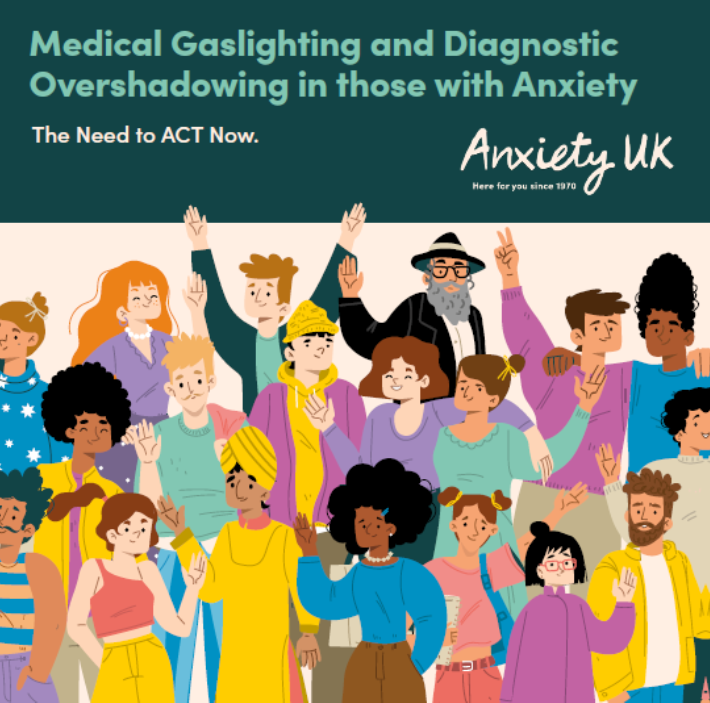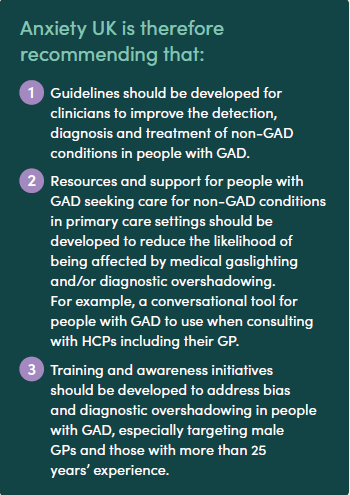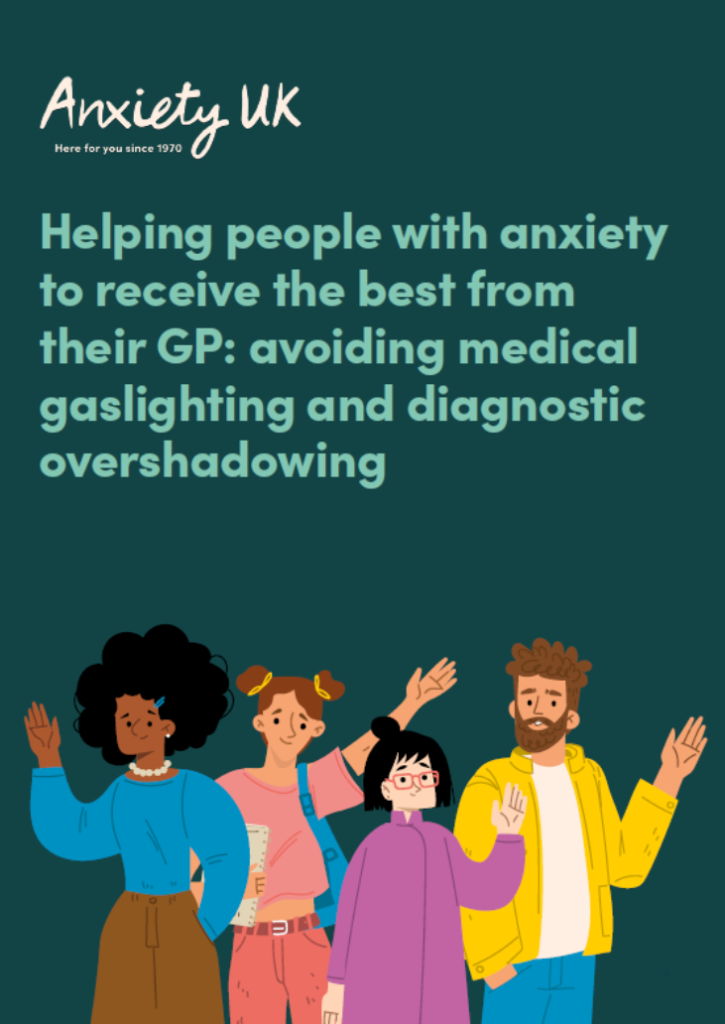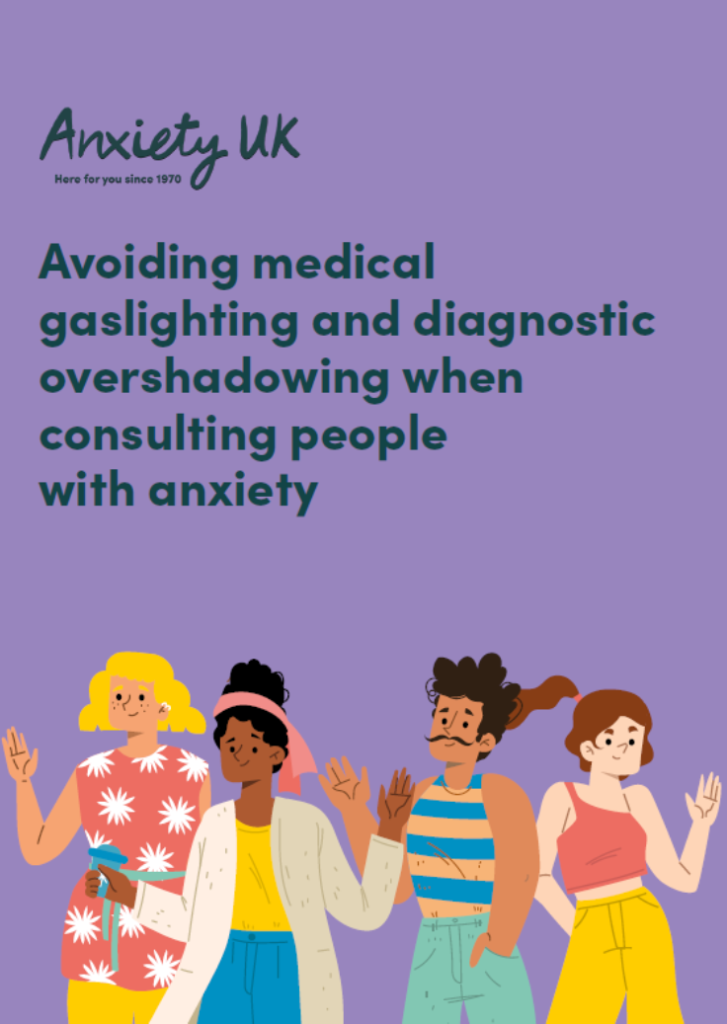Menu

Anxiety UK, has released a report into medical gaslighting and diagnostic overshadowing experienced by those living with generalised anxiety disorder (GAD).
The report is calling for a range of initiatives to be considered including more time to talk to their Health care professionals (HCPs), more face-to-face appointments for those living with GAD and a record of their condition to share with other HCPs.
The results also highlighted that there is a desire from both GPs and people with GAD themselves to receive increased and more effective support, through initiatives such as additional resources, tools, and training to help address barriers to receiving quality care.
Anxiety UK is therefore recommending that guidelines should be developed for clinicians to improve the detection, diagnosis, and treatment of non-GAD conditions in people with GAD.
Resources and support for people with GAD seeking care for non-GAD conditions in primary care settings should also be developed to reduce the likelihood of being affected by medical gaslighting and/or diagnostic overshadowing. This could include, for example, production of a conversational tool for people with GAD to use when consulting with HCPs, including their GP.
Training and awareness initiatives should similarly be developed to address bias and diagnostic overshadowing in people with GAD, especially targeting male GPs and those with more than 25 years’ experience.
A copy of the report can be downloaded here.
.


This resource has been developed to help individuals with anxiety navigate conversations with their general practitioners (GPs) to ensure their health concerns are taken seriously and investigated appropriately.

This resource has been developed to provide guidance on avoiding
medical gaslighting and diagnostic overshadowing when consulting people with anxiety.
Anxiety UK is a national registered charity formed in 1970, by Katharine and Harold Fisher, for those affected by anxiety and anxiety disorders.
To read more, please click here.
We do not tolerate rude, abusive, offensive, racist or sexist language. Any contact received with content deemed offensive, abusive, racist, sexist etc. will not be responded to as we operate a zero tolerance policy to abuse of any form. Legal action will be considered/taken if appropriate. For more information click here.
Download a copy of our environmental policy here.
Anxiety UK, Nunes House, 447 Chester Road, Manchester M16 9HA
See our FAQs here
Press/media enquiries: [email protected]

To find your downloads on Android, open the phone's file manager. If the device doesn't have one, you can download a file manager from the Google Play Store. Open the file manager app and go to the Downloads section. You will see a list of all your downloaded files, photos, videos, and documents here.
